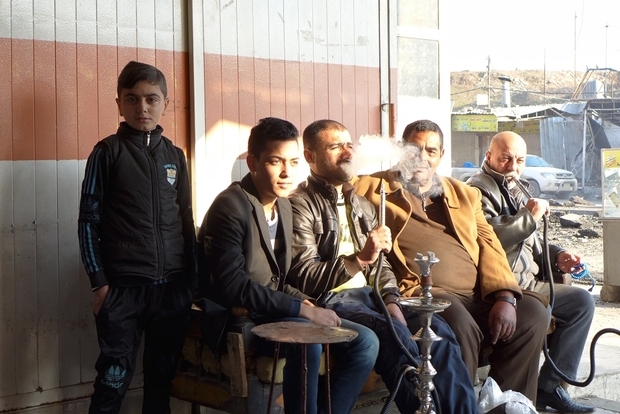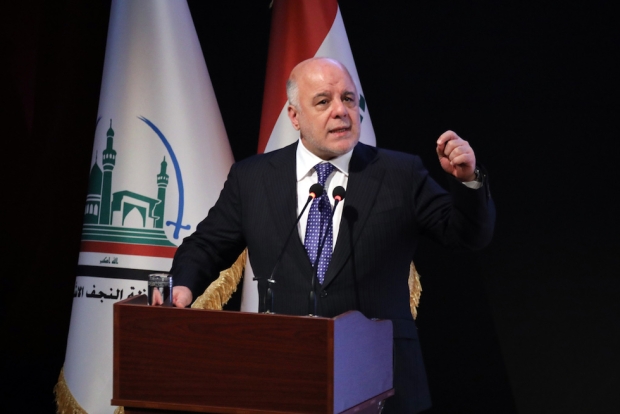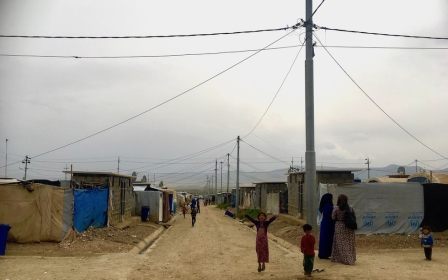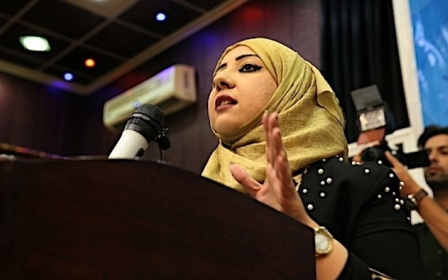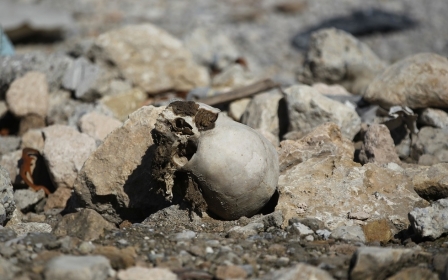A year after defeating IS, Iraq's government must offer a national vision
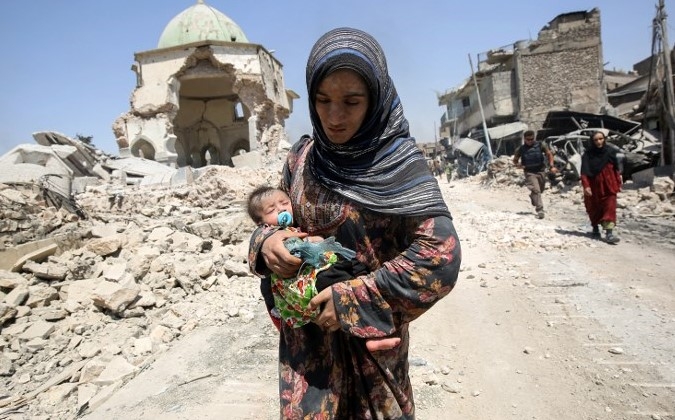
In July 2014, exactly four years ago, Abu Bakr al-Baghdadi, standing in the al-Nuri mosque in Mosul, declared a caliphate and Islamic State. In July 2017 that mosque was captured by Iraqi military forces, and Iraqi Prime Minister Haider al-Abadi celebrated that moment as the culminating victory over the Islamic State of the Iraq and Syria (ISIS).
At that juncture, numerous challenges lay ahead for the Iraqi state in terms of reconstruction and reconciliation after three years of the Islamic State’s rule. How has the Iraqi state fared one year after the liberation of Mosul?
A daunting challenge
The most daunting challenge would appear to be reconciliation, especially amongst Iraq's ethnic and sectarian communities, and their relationship to the Iraqi state. The outcome of Iraq's May election provides some cautious optimism in this regard.
Reconstruction is a physical challenge, rebuilding the urban centres that the Islamic State (IS) had previously held so that internally displaced people (IDPs) can have a home to return to, and feel free of threats and intimidation, particularly from retribution killings if the IDPs allegedly collaborated with IS.
Reconciliation entails the transformation of sentiments among local populations, such as dealing with those accused of working with IS
While the central government's reconstruction, particularly of Mosul, has been ad hoc and lethargic, local communities have proved more resilient in rebuilding their devastated towns and cities. In Mosul, the clean-up has been taken up by volunteers or self-financed by the cash-strapped residents.
Reconciliation entails the transformation of sentiments among local populations, such as dealing with those accused of working with IS. In this regard, tribal institutions have used their own mechanisms of honour, reconciliation and reintegration when the Iraqi justice system has failed.
In terms of reconciliation at the national level, state institutions need to foster trust with the Iraqi public. Alienated Iraqi Kurds and Arab Sunnis appeared to exhibit "buy-in" vis-a-vis the central government in Baghdad, trusting the fate of their communal groups with their elected representatives in parliament.
Structural problems
By the time IS was defeated, the Shia militias were often perceived by both Kurds and Arab Sunnis as a coercive sectarian institution during the three-year war, while some Shia saw them as liberators. Now Shia militia leaders are operating not as military commanders but as politicians after their coalition won second place in the Iraqi election.
On the battlefield these commanders demanded discipline and obedience from their fighters. In parliament, they will have to practice compromise and persuasion without the resort to arms. Not only that, but the militia commanders who are now politicians will likely seek to rein in their militias and encourage their integration within the national security forces to maintain public approval ratings.
The new Iraqi government will have to tackle issues beyond reconstruction and reconciliation and address structural problems endemic to Iraq’s politics.
All these challenges that emerged in the first year after the liberation of Mosul raise the question of how the Iraqi government will fare in the coming period.
As the first anniversary of the fall of Mosul passes, the victors of Iraq’s elections have yet to agree on a new prime minister and cabinet. The new Iraqi government will have to tackle issues beyond reconstruction and reconciliation and address structural problems endemic to Iraq’s politics.
First and foremost is corruption. Shia religious leader Muqtada al-Sadr's coalition, al-Sairoun (The Marchers) won the elections, running on a platform of non-sectarianism and stamping out corruption.
During the three-year war against IS, the public followed news of the war front, following battles for cities like Tikrit, Ramadi, Falluja and Mosul, as Iraqi military forces conquered neighbourhood by neighborhood, street by street.
Now Iraqis will demand news of a new battle, the stamping out of corruption, ministry by ministry, politician by politician.
Providing security
Second, the new Iraqi government will be judged on its ability to provide security. Year one after the fall of Mosul saw relatively few IS attacks, with the exception of one in January 2018 that killed 38 in Baghdad, and a recent spate of kidnappings in June on the Baghdad-Kirkuk highway.
The Iraqi security forces will have to remain vigilant in preventing IS's resurrection, and reforms and restructuring of the Iraqi security forces will have to continue so that they serve as a force able to guard Iraq's porous borders with Syria as well as conduct anti-terrorism operations within the nation.
This challenge could prove particularly daunting as the US and Iran have ratcheted up tensions following Trump's withdrawal from the nuclear deal, which threatens to turn Iraq into a proxy arena between Washington and Tehran.
A strategic narrative
First and foremost, on the national level, the new Iraqi government will have to develop a compelling strategic narrative of how a political process can address the underlying conditions which led to the emergence of IS in the first place, four years ago.
These issues include forging national cohesion among the bickering Shia elites, Kurdish parties and elements of Arab Sunni political spectrum that all are contesting power as a new government takes shape.
A compelling narrative would build upon the trauma of IS rule and the war against it, by establishing common ground among all Iraqis that this group can never be allowed to establish territorial control within any part of the nation, and any attempts for it resort to violence as an insurgent group must be prevented.
Second, the new Iraqi government must take into account the public's desire for reliable governance, their weariness of ethno-sectarian divisions that undermines governance, and most importantly deliver stable governance on the national, provincial, and municipal level.
Finally, the Iraqi state must demonstrate that its oil wealth will not be squandered, but used for a sustainable reconstruction process and stimulating employment opportunities.
Four years ago, when IS took over Mosul and declared an Islamic State, there were numerous prognoses indicating the collapse and disintegration of the Iraqi nation state. Not only were those obituaries premature, but Iraqis, many taking matters in their own hands on the local level in reconstruction and reconciliation, have sought to ensure the survival of their nation.
- Ibrahim al-Marashi is Associate Professor of Middle East History at California State University San Marcos. His publications include Iraq's Armed Forces: An Analytical History (2008), The Modern History of Iraq (2017), and A Concise History of the Middle East (forthcoming).
The views expressed in this article belong to the author and do not necessarily reflect the editorial policy of Middle East Eye.
Photo: An Iraqi woman, carrying an infant, walks by the destroyed Al-Nuri Mosque as she flees from the Old City of Mosul on 5 July, 2017 (AFP).
This article is available in French on Middle East Eye French edition.
Middle East Eye propose une couverture et une analyse indépendantes et incomparables du Moyen-Orient, de l’Afrique du Nord et d’autres régions du monde. Pour en savoir plus sur la reprise de ce contenu et les frais qui s’appliquent, veuillez remplir ce formulaire [en anglais]. Pour en savoir plus sur MEE, cliquez ici [en anglais].



